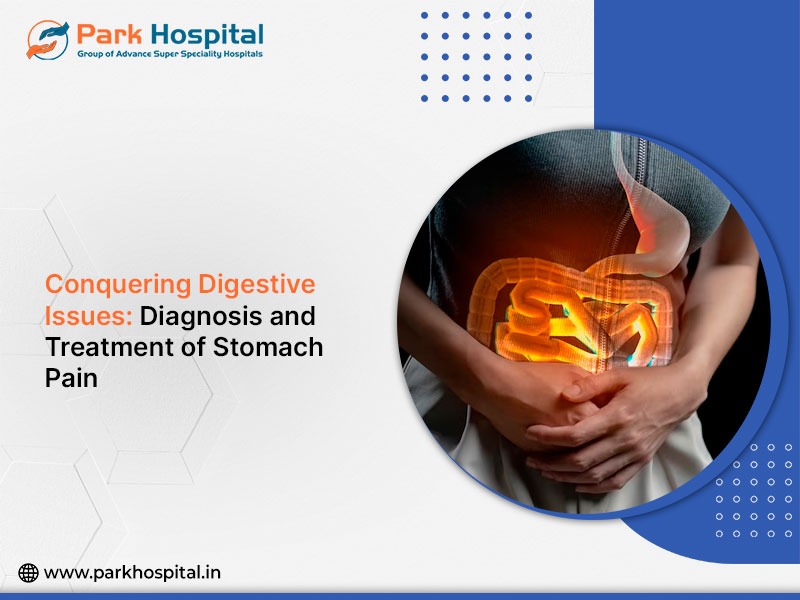Introduction
Irritable bowel syndrome is a chronic disease that affects the stomach and large intestines. It is a common disease, and many suffer from it. However, the symptoms of IBS can vary from mild to severe. It is usually uncomplicated to manage and prevent it by bringing a few changes in your lifestyle that most Gastro hospital recommend. It is crucial to be aware of the causes and symptoms of irritable bowel syndrome, which can help take the right preventive measures to manage it. Park Hospital combines the most experienced professionals to bring a comfortable environment to its patients, facilitating them with the best services.
Common Symptoms of Irritable Bowel Syndrome
Irritable bowel syndrome is a common gastrointestinal disorder affecting many. The condition can get severe over time if necessary attention is not provided in the early stages of the disease. Hence, it is essential to be aware of the symptoms to detect the signs and consult a professional regarding a checkup to ensure overall well-being. Here are some of the common symptoms that could be your bodyís way of communicating about its inability to fight off infections:
1. Abdominal pain and bloating: An extreme abdominal pain similar to cramping can be one of the leading signs of irritable bowel syndrome. Along with abdominal pain, you can also experience extensive bloating, causing further pain and discomfort. It is usually experienced while passing a bowel movement.
2. Iron deficiency: Iron deficiencies are caused when the body's iron content is insufficient. It can lead to a reduced production of hemoglobin. Anemia is a result of iron deficiency, which also results in the reduction of red blood cells. Managing the symptoms of irritable bowel syndrome is extremely important as it can have adverse effects on the body.
3. Fatigue and nausea: Feeling unusually tired during the day can be one of the symptoms of irritable bowel syndrome. Visit a Gastroenterology hospital with this concern. They will ensure you run a thorough full-body check-up, as nausea and fatigue can easily be induced during this condition.
4. Constipation or diarrhea: Alternating constipation and diarrhea are common signs of irritable bowel syndrome when the body tries to convey the discomfort and inability to fight the severe condition. Constipation can lead to difficulty passing stool with inconsistency, while diarrhea episodes can consist of frequent need to use the restroom.
Analyzing Common Dietary Triggers for Irritable Bowel Syndrome
Analyzing and understanding the dietary triggers for irritable bowel syndrome is essential to ensure preventive measures can be taken on time and determine whether a professional intervention is required. Here are some of the food items that can trigger and aggravate irritable bowel syndrome that you should avoid to prevent it from occurring:
1. Gluten-containing food items: Gluten is a type of protein that can be found in food items like wheat, rye, barley, and oats. Gluten can be one of the triggering components of irritable bowel syndrome (IBS). Foods containing excessive amounts of gluten that should be avoided are bread, pasta, cereals, and granola bars.
2. Caffeinated drinks: Caffeine can induce irritation in the intestines and diarrhea, hence requiring you to avoid them to prevent irritable bowel syndrome. These include tea, coffee, energy drinks, and many chocolates.
3. Carbonated beverages: Carbonated drinks are the main cause of excessive gas in your system, which can lead to bloating. Extreme bloating further causes pain and discomfort. If you pay a visit for professional advice to any Gastro hospital, you will receive the recommendation to avoid soda, sparkling water, champagne, and any other beverage that is carbonated.
4. Alcohol: Alcohol adversely affects the human body when it is used excessively and irresponsibly. Alcohol not only disrupts digestion but also irritates the gut, aggravating the symptoms of irritable bowel syndrome.
Comprehensive Strategies For Effectively Managing Irritable Bowel Syndrome
Comprehending the common causes of irritable bowel syndrome is essential if you desire to prevent it promptly. It can be effectively managed by bringing a few changes in your lifestyle. For instance, a better-balanced diet can be adopted in your daily life along with the incorporation of exercise and other physical activities. Visiting a Gastroenterology hospital, you would receive thorough guidance on how to effectively manage irritable bowel syndrome. Park Hospital offers professional advisors and esteemed facilities to all their patients, helping them navigate their way to a speedy recovery.




